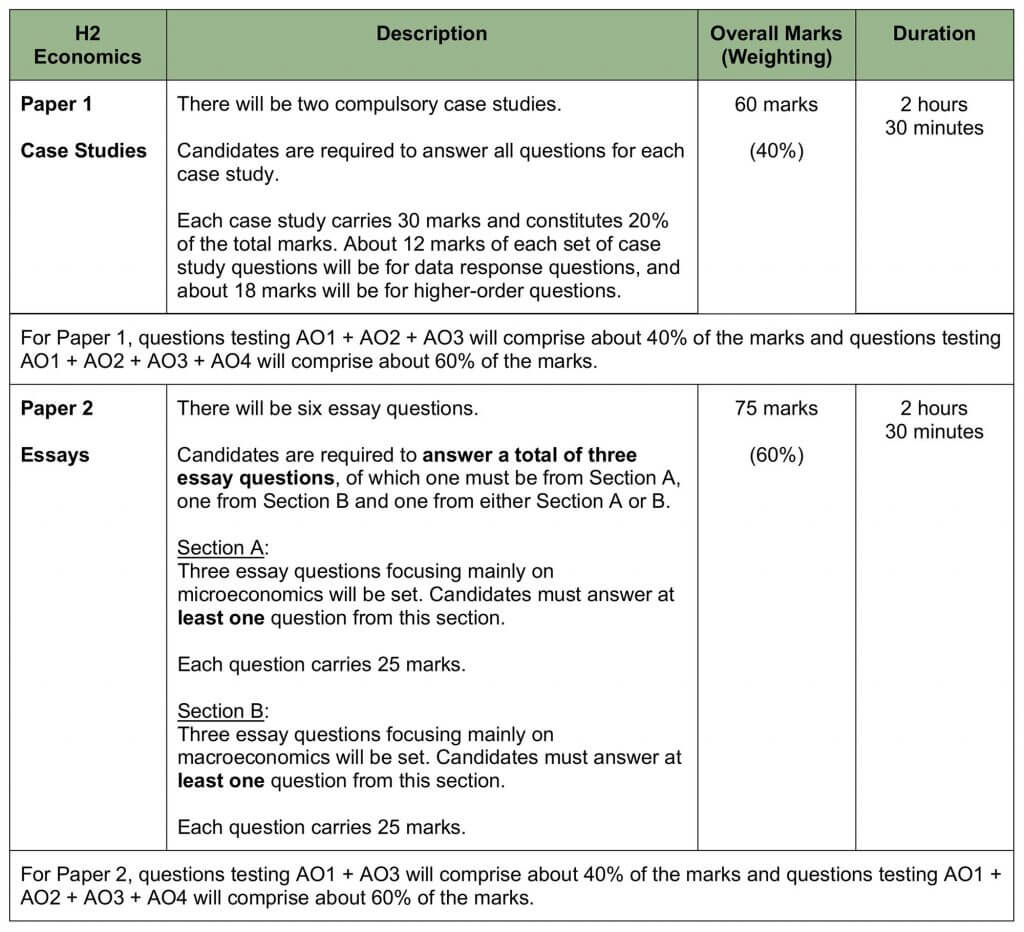H2 Economics Tuition (9570)
The H2 economics tuition programme at Excel Economics is designed to ensure students achieve excellent content mastery and develop higher order thinking skills.
As an experienced Economics tutor with 20 years of teaching experience in various economics syllabi ranging from Cambridge & Edexcel IGCSE to IB Economics, I personally find Singapore’s GCE ‘A’ Level Economics most challenging. The syllabus is not only most rigorous in terms of content, but also very demanding in its assessment. The emphasis of the 9570 syllabus is placed on the development of higher-order thinking skills in students, such as critical thinking, evaluation and data-handling skills, rather than on the development of students’ ability to memorise and regurgitate factual and procedural knowledge. As this is a completely new subject to large majority of the students in Singapore, many do struggle with the subject, especially in the first year of learning. I would like to emphasise to students there is a spiralling of content in Economics. Once students fail to grasp the concepts in the earlier topics, they will get more confused as lectures/tutorials progress. As such, it’s important to get the fundamentals right!
The H2 Economics syllabus is designed through a thematic approach, which reflects a coherent flow of the content and enables students to appreciate the interrelations between economic concepts, theories and principles. The syllabus is organised around three major themes that are selected to structure the learning of students in a progressive manner.
Economics is distinctive in terms of the approach used to analyse a range of issues faced by economies. The A-Level H2 Economics syllabus intends that students develop the knowledge, skills, values and attitudes as outlined below.
Knowledge
Students should develop a strong understanding of economic language and terminology while creating a strong foundation for:
- Fundamental economic theories, principles, and concepts
- Tools and techniques of analysis economists apply
- Real-world economic problems; and
- The roles, perspectives, and decision-making process of economic agents
Skills
Students should improve their ability to:
- Identify economic phenomena in both national and international contexts
- Choose pertinent economic information from various sources
- Determine and evaluate assumptions made by various economic agents for information and phenomena interpretation
- Create evidence-based practical economic arguments for rational decisions
- Apply economic theories, concepts, and principles to analyse economic agents’ phenomena and decisions
- Consider the real-world applications of economic concepts, theories, and principles
Values and Attitudes
Students should develop:
- An awareness of their roles and responsibilities as economic agents in the global economy
- Appreciation of individual contributions to the national and international economy
- Understanding the responsibilities of the market and government in achieving economic goals for better living standards; and
- A desire to engage in informed discussions about contemporary economic issues and solutions proposed by economic agents
- A willingness to engage in informed discussions about contemporary economic problems and solutions proposed by economic agents
SCHEME OF H2 ECONOMICS ASSESSMENT
1. Assessment Mode
The assessment comprises two compulsory written examination papers: Paper 1 (Case Studies) and Paper 2 (Essays). Taken as a whole, both papers incorporate a good balance of questions on microeconomics and macroeconomics.
2. Description of Components
Paper 1 (Case Studies- 2hr 30 min) The paper will include two case studies. Each of these will consist of two to three pages of data presented in textual, numerical or graphical form. Each case study will present contemporary multifaceted economic issues or policies, which may be from one or more themes in the syllabus. The data for each case study will be followed by six or seven part-questions, including sub-parts. These questions will require candidates to apply relevant economic concepts, theories and principles in analysing, synthesising and evaluating economic issues, perspectives or policies, with reference to the data provided. About 12 marks of each set of case study questions will be for data response questions, and about 18 marks will be for higher-order questions.
Paper 2 (Essays- 2hr 30 min) Questions in Section A will focus mainly on microeconomics and questions in Section B will focus mainly on macroeconomics. Each essay question will comprise two parts, with part (a) carrying 10 marks and part (b) carrying 15 marks. Questions may be based on real-world contexts. Candidates are expected to apply relevant economic concepts, theories and principles to analyse issues and to evaluate perspectives or policies. They should synthesise and construct coherent arguments to arrive at well reasoned judgements and decisions.
Source:
Economics H2-Syllabus 9570 (2023) (seab.gov.sg)
Please refer to the link above for more details.
Lesson Registration & Enquiries For H2 Economics Tuition
For more details, please call/sms/whatsapp 9689 3944, email admin@exceleconomics.com
or use the online contact form to get in touch with us. Thank you!
Contact Us Today
